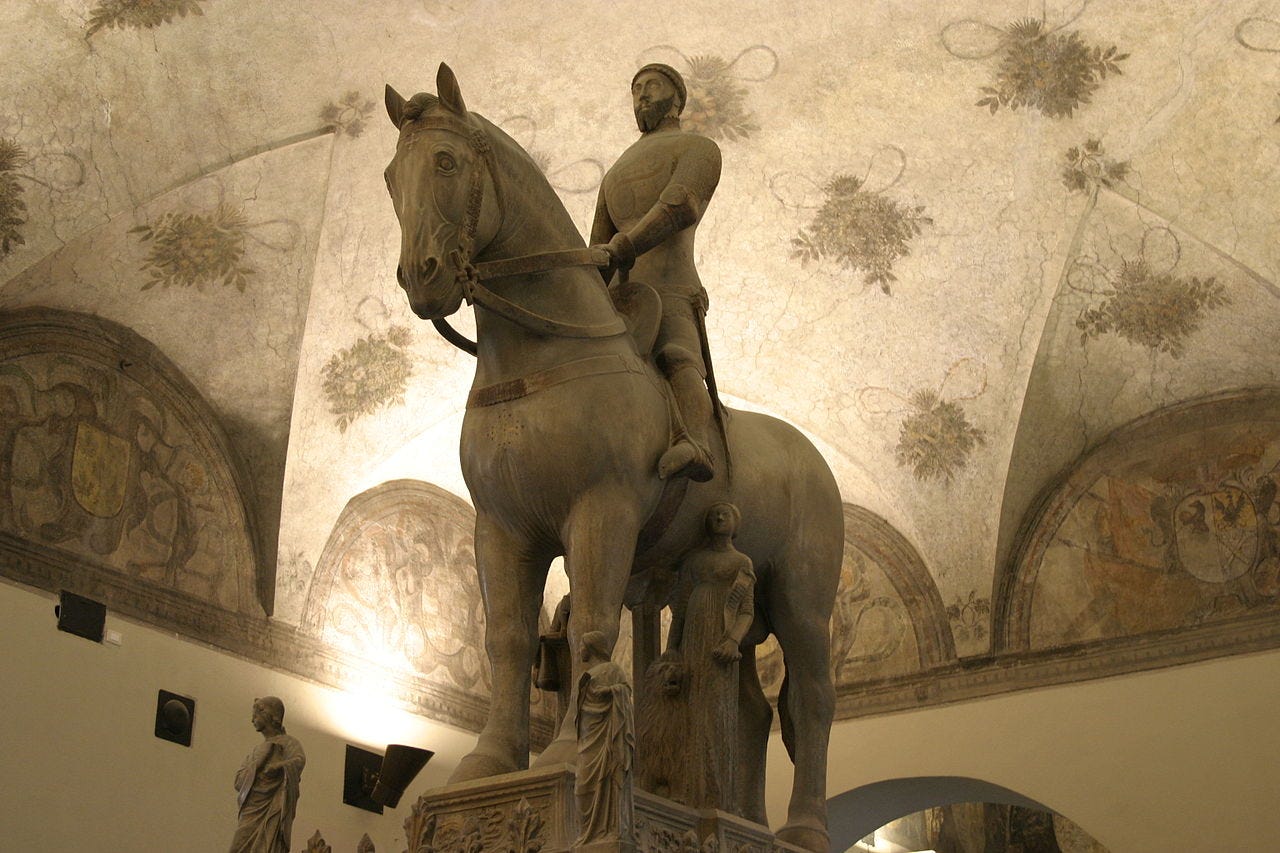Once upon a time, a girl named Lucia was born into a sprawling, powerful and dangerous family.
The time was 1380 (or thereabouts), the place Milan (or somewhere near).
Her formidable mother, Beatrice Regina della Scala, was already in her late forties when Lucia was born, and died before the little girl’s fifth birthday.
A year later her terrifying father, Bernabò Visconti, lord of Milan, was deposed and murdered by his nephew and co-ruler Gian Galeazzo. Perhaps he should have seen it coming: he’d done the same to his brother Matteo thirty years before.

But the result for Lucia and her siblings was sudden vulnerability.
Many of her five brothers, nine sisters and at least twenty illegitimate half-siblings were already grown to adulthood and established in the world, or in some cases – given that Bernabò had been fathering children for more than forty years – already dead.
Lucia’s oldest sister Taddea had married the duke of Bavaria in 1364, and died in 1381. (Isabeau of Bavaria, queen consort of Charles VI of France, was Taddea’s daughter.)
Her half-sister Donnina was the wife of Sir John Hawkwood (his unpronounceable name rendered in Italian as Giovanni Acuto), an English mercenary who made his fortune in the service of the states of Milan and Florence.
Her sister Caterina had been proposed, two years before Lucia’s birth, as a bride for the young king Richard II of England. One of the envoys sent from London to Milan to discuss the match was an esquire of the royal household named Geoffrey Chaucer, who may well have read the works of Dante, Petrarch and Boccaccio in the great Visconti libraries in Milan and Pavia. Despite Chaucer’s best efforts, no agreement with the English had been reached by 1380, when Caterina instead became the wife of her cousin Gian Galeazzo.
In 1385, therefore, when their father Bernabò was overthrown, Caterina’s presence at Gian Galeazzo’s side – and Lucia’s own potential value on the international marriage market – were the little girl’s best hope of safety.
But safety wouldn’t come without challenges. Most likely, marriage would take her far from home, into an unfamiliar political world and an intimate relationship with a man she’d never met. Among her sisters, one had been dispatched to Austria, two to Germany, and one south to Cyprus. Another, Agnese, was closer at hand in Mantua, just 80 miles from Milan, but closeness had its own dangers: in 1391, caught in the violent currents of Italian politics, she was executed on charges of adultery by her husband Francesco Gonzaga.
Two years after that, perhaps it was no wonder that thirteen-year-old Lucia – with such uncertain prospects ahead of her – was swept off her feet by the visiting English lord Henry of Bolingbroke, earl of Derby, heir to England’s great duchy of Lancaster.
No one ever said (at least, not in any of the documents I’ve read) that Henry was handsome – but then he didn’t need to be. He was athletic, rich, elegant, well educated, charismatic, the cousin of a king, and on top of all that he was nice – by which I mean that people liked him. The men who served him stayed with him. The friends he made were life-long and close-knit. When he spent a few months in Paris in 1398–9 in appallingly difficult circumstances – banished from England by his increasingly tyrannical cousin – he was so ‘gracious, good-natured, courteous and easy to deal with’, the chronicler Jean Froissart reported, that the French nobles were certain either that Richard II must know something they didn’t, or that the king was very badly advised to have got rid of him. Because in France, Froissart said, he was ‘loved by all’.
In Italy too. In the spring of 1393, twenty-six-year-old Henry had passed through Milan on his way back from a glamorous grand tour across Europe and a pilgrimage to Jerusalem. Lucia was bowled over.
But if Gian Galeazzo’s plans for her had worked as he intended, I suspect we wouldn’t know how she felt.
Keep reading with a 7-day free trial
Subscribe to The H Files by Helen Castor to keep reading this post and get 7 days of free access to the full post archives.


